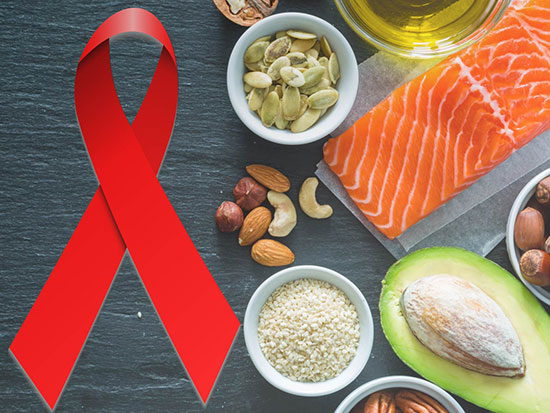
Nutrition in AIDS
HIV (Human Immunodeficiency Virus) is a virus that attacks the body's immune system and causes AIDS. If left untreated, AIDS can lead to Acquired Immune Deficiency Syndrome. There is currently no effective treatment for AIDS. When people get AIDS, they get the disease for the rest of their lives; But with proper medical care, AIDS can be controlled.
Symptoms of AIDS
• Weight loss for no reason
• Recurrent upper respiratory tract infection
• Chronic diarrhea for more than a month
• Fever for more than a month
• Pulmonary tuberculosis or extrapulmonary tuberculosis
• Severe bacterial infection
• Chronic herpes for more than a month
Methods of contracting AIDS
• Receiving blood or transfusing infected blood, or injecting blood with a virus-infected syringe
• Having unprotected sex
• Transmission from infected mother to fetus or infant during lactation
In people living with HIV, poor nutrition can lead to several reasons, including anorexia, increased catabolism, chronic infection, fever, nutrient deficiency, nausea, vomiting, diarrhea, malabsorption, metabolic disorders, lack of Establish access to food. Depression and side effects of medications, radiation therapy, and chemotherapy should also be considered.
Malnutrition can be prevented and reversed using current therapies, including nutritional therapy, including nutritional evaluation, development of an individual nutritional treatment plan, and treatment. There is considerable evidence that medical nutrition therapy saves lives, reduces complications, improves health outcomes, reduces costs, and shortens hospital stays.
If having AIDS, proper nutrition can have many benefits; Including:
•Improve the overall quality of life by providing the nutrients the body needs.
•Keep the immune system more robust to fight disease better.
•Help manage the symptoms and complications of AIDS.
•Metabolize drugs and help manage their side effects.
•Basic principles of nutrition and AIDS
If the test is positive for HIV, the basics of healthy eating will also help. These principles include the following:
•Follow a diet rich in vegetables, fruits, whole grains, and legumes
•Selection of low-fat protein and low-fat sources
•Limit the consumption of sweets, soft drinks, and foods with added sugar
•Use protein, carbohydrates, and an excellent little fat in all meals and snacks
Calories
Increase the calories to maintain a lean body mass. To get enough calories to maintain weight, get 17 kcal per 0.5 kg of body weight.
Protein
If having an infection, get 20 kcal per 0.5 kg of body weight.
If losing weight, get 25 kcal per 0.5 kg of body weight.
Protein helps build strong muscles, limbs, and the immune system. To get enough of the suitable types of protein:
Men with AIDS should eat 100 to 150 grams of protein daily.
Women with AIDS should eat 80 to 100 grams of protein a day.
If kidney disease does not get more than 20% of the calories from protein, it puts much stress on the kidneys.
Choose lean beef, chicken breast, and low-fat dairy in the diet.




